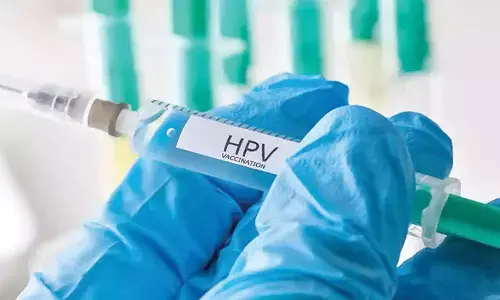Pap smear tests: At what age and how often should women take it?

For several women, the thought of undergoing a Pap smear test can be scary. The decision to get yourself tested is often accompanied by anxiety and fear, due to which many women often choose to cancel their scheduled appointments for pap smear tests. This fear contributes significantly towards the lack of awareness related to the tests; however, women should remember that this 5 minute procedure is the most essential for them and can prevent them from life-threatening diseases like Cervical cancer.
According to recent estimates, Cervical cancer is the second most common form of cancer found among women of the age group 15 to 44 years of age.
The current estimates also indicate that India contributes approximately 1,00,000 new cases and 60,000 deaths annually, accounting for nearly a third of the global cervical cancer deaths.
Even though cervical cancer is a completely preventable disease, unfortunately, the females in India are unaware of the screening process for cervical cancer care.
With improved vaccination, screening and treatment, the World Health Organization (WHO) aims to reduce more than 40 per cent of new cases and 5 million related cervical cancer deaths by 2050.
What is a Pap smear test?
Pap smear is a screening test used to detect potentially precancerous and cancerous processes in the endocervical canal. This test is conducted to detect any inconsistencies or changes in the cervical cells of women, which can turn cancerous in the future.
Pap smear test has both diagnostic and predictive purposes and can determine if any abnormal cells in the cervix tend to turn cancerous.
What is the ideal age to undergo a Pap smear test?
According to the Centers for Disease Control and Prevention (CDC), women aged 21 and 65 should undergo regular Pap smears tests. Additionally, it recommended that women in the menopausal and postmenopausal stage should continue to have Pap or HPV tests.
It is also important to note that Cervical cancer can be cured if detected on time, and hence, testing becomes the best tool to detect any precancerous conditions that may lead to cervical cancer.
How often should you go for a Pap smear test?
Below are the recommended testing schedules for each age group - From 21–29 years - 21 is the ideal age to undergo a pap smear test. If your first test results are negative, you can go for another test after a gap of three years.
From 30–65 years - Women in this age group can either go for a Pap test or a combined Pap and HPV test. If you choose a single Pap test and the results are normal, your doctor will ask you to undergo a test after 3 years. If you have opted for a combined test and its results are normal, you will be required to undergo a test after 5 years.
When should you avoid a Pap smear test?
If you are having your periods at the time of your scheduled appointment, you should check with your clinician if you should go ahead with the test. The other conditions under which your doctor may ask you to avoid a pap smear test include -
- Intercourse
- Vaginal douching
- Vaginal lubrication or use of tampons
- Vaginal creams, suppositories, or medications
- Using cream, or jelly or birth control foam
(The author is a Lead Consultant - Surgical &Gynaecological Oncology & Robotic Surgeon, Aster CMI Hospital, Bangalore).









